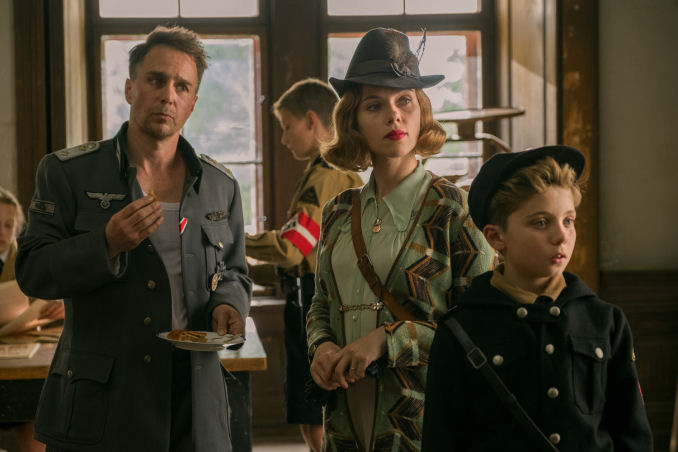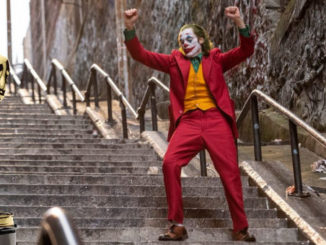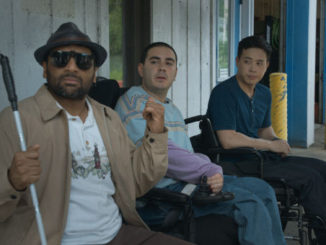 At turns cartoonish and poignant, Taiki Waititi’s Jojo Rabbit is not only one of the funniest films of the year, it is just flat out one of the best. While I know we have a little over two months to go before we close the books on 2019 and there are still a few potential contenders yet to come to theaters, Jojo Rabbit has definitely earned a place in the conversation.
At turns cartoonish and poignant, Taiki Waititi’s Jojo Rabbit is not only one of the funniest films of the year, it is just flat out one of the best. While I know we have a little over two months to go before we close the books on 2019 and there are still a few potential contenders yet to come to theaters, Jojo Rabbit has definitely earned a place in the conversation.
Jojo is a lonely, awkward pre-teen who thinks that joining a group of his peers will help him find some friends and acceptance. Unfortunately, Jojo is living in 1940s Germany and the group of peers he thinks will fix is problems is the Hitler Youth. However, one weekend gathering later, Jojo has pretty much learned that he isn’t quite a fit for the group. Not to worry though, he still has imaginary friend Adolf to keep him company. But even that relationship is about to change when Jojo discovers that his singe mother has been hiding a young Jewish girl in the crawl space next to his dead sister’s bedroom.
Waititi shows a masterly hand as the film transitions from its broad comic opening scenes through to its sweet, understated ending. Even with what seems like a small decision, Waititi can set the viewer up for either a comic or tragic surprise. For example, Waititi presents much of the film from Jojo’s eye-level which helps us to relate how he views his world, but also very subtly sets up a shocking third act reveal. He should also be complemented for casting and getting some great comic performances out of child actors Roman Griffin Davis, Thomason McKenzie and newcomer Archie Yates, who plays Jojo’s even more befuddled friend Yorkie.
It is easy to say that Jojo Rabbit is a film that asks its audience to reject hate in their lives and in public discourse and embrace love, even if it didn’t have a short message from director/co-star Taiki Waititi at the beginning. But the film drills down a little deeper than that broad generalization and works as a satirical treatise on the dangers of hero worship. Jojo idolizes Hitler seemingly only because everyone else does. For Jojo, popularity and being part of that “in crowd” will fill the void left in his emotional life by the departure of his father and the death of his sister. And he will willingly parrot any old ridiculous thing any party member will say about the Jews if it will get him some sort of the attention or affirmation he craves. And to get that, he has turned off any critical thinking that an impressionable ten-year-old boy may have.
But all that falls away as his friendship with Elsa grows. He sees her not in terms of the lies he had been fed about Jewish people, but as simple a fellow person, with the racist slander being exposed for the ridiculousness that it is.
Interestingly, as Jojo moves away from the Nazi ideology, his relationship with imaginary Adolf deteriorates. At first, it seems that Adolf is just jealous that Jojo is spending time with someone else. But as Jojo begins to see the lies of Nazism, Adolf becomes more and more like the historical, real-life Fuhrer. Jojo is able to see Hitler for who he really is as the needs in his life that were being partly met through being in the Hitler Youth start to be more fully and healthfully met by his more functional friendship with Elsa. It’s a smart bit of scripting that culminates in Jojo delivering a line of dialogue that





